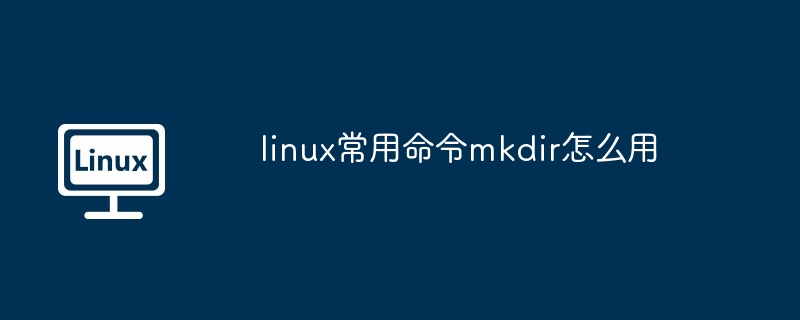
Create a directory. Syntax: mkdir [options] Directory name. Options: -p: There is no upper-level directory automatically created; -m: Set directory permissions; -v: Output detailed information. Example: Create a directory named "newdir": mkdir newdir. Set permissions to "755": mkdir -m 755 newdir. Create in the non-existing parent directory "mydir": mkdir -p mydir/newdir.

Linux common commands: mkdir
Purpose: Create directory
Syntax:
<code>mkdir [选项] 目录名</code>
Options:
Example :
Create a directory named "newdir":<code>mkdir newdir</code>
<code>mkdir -m 755 newdir</code>
<code>mkdir -p mydir/newdir</code>
Note:
The above is the detailed content of How to use the commonly used Linux command mkdir. For more information, please follow other related articles on the PHP Chinese website!




